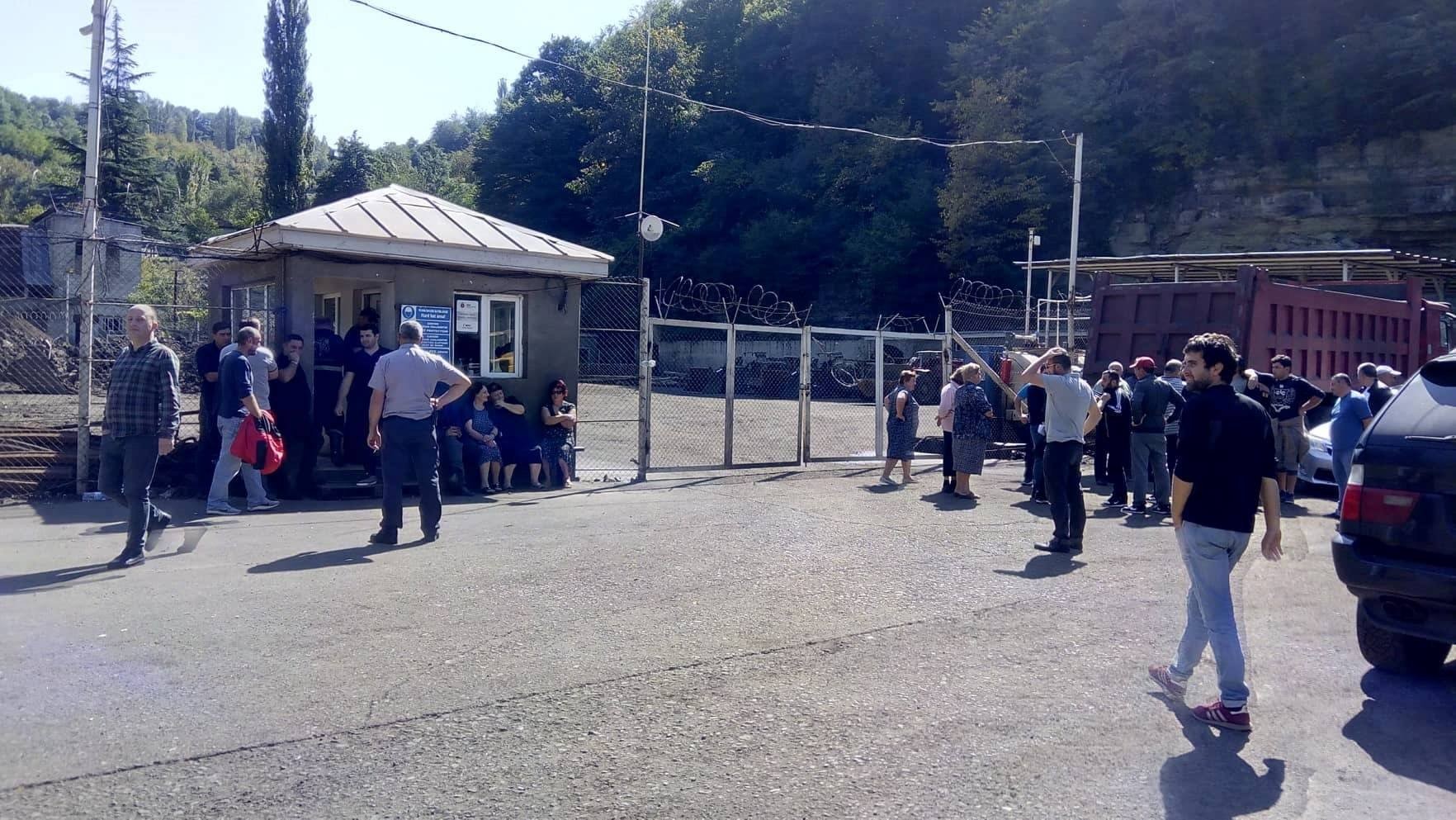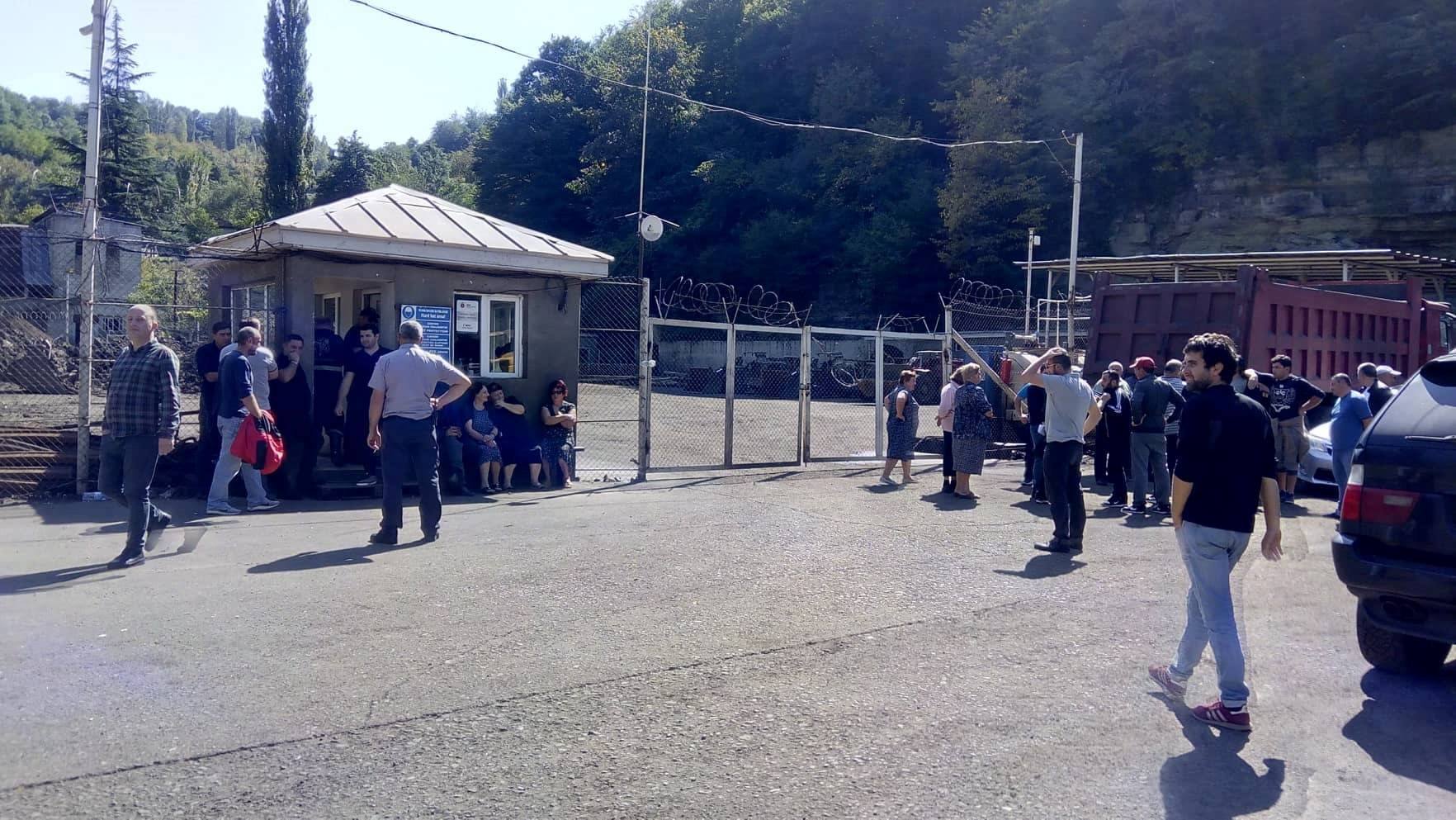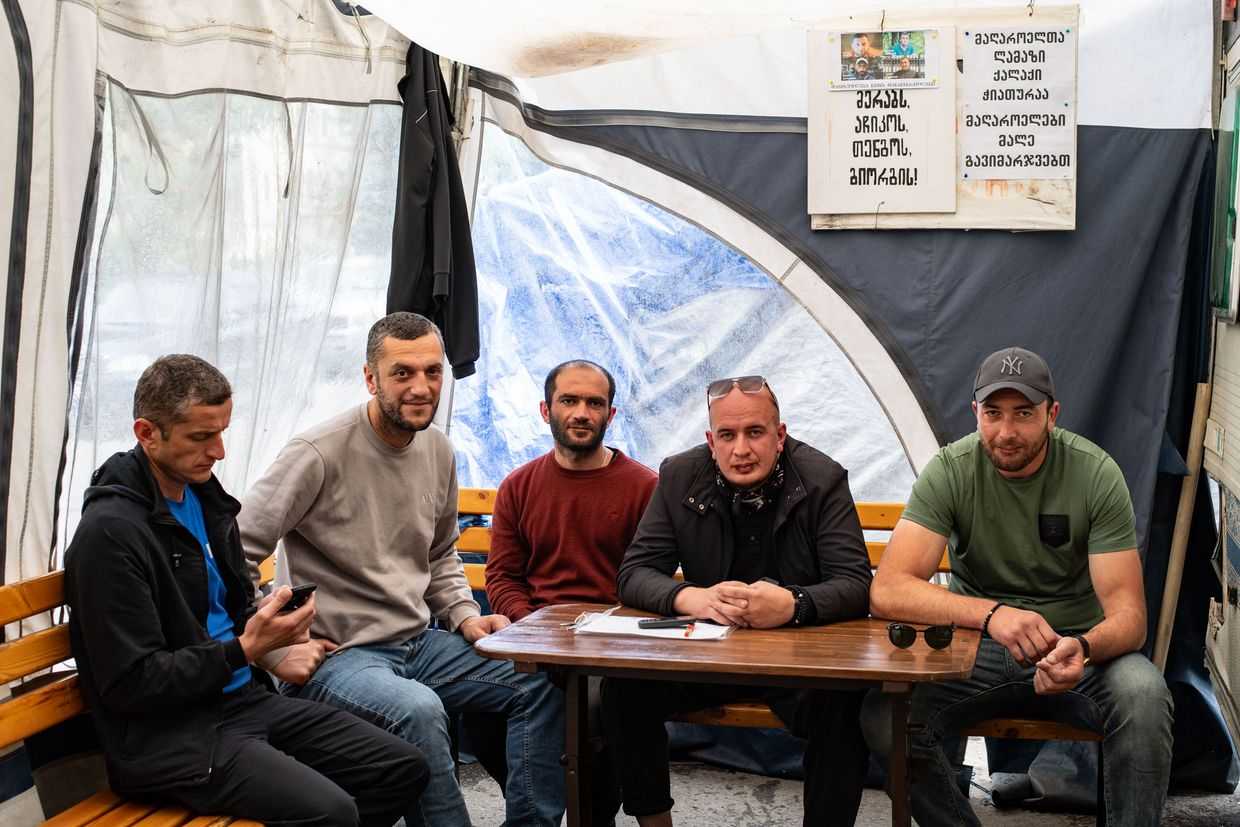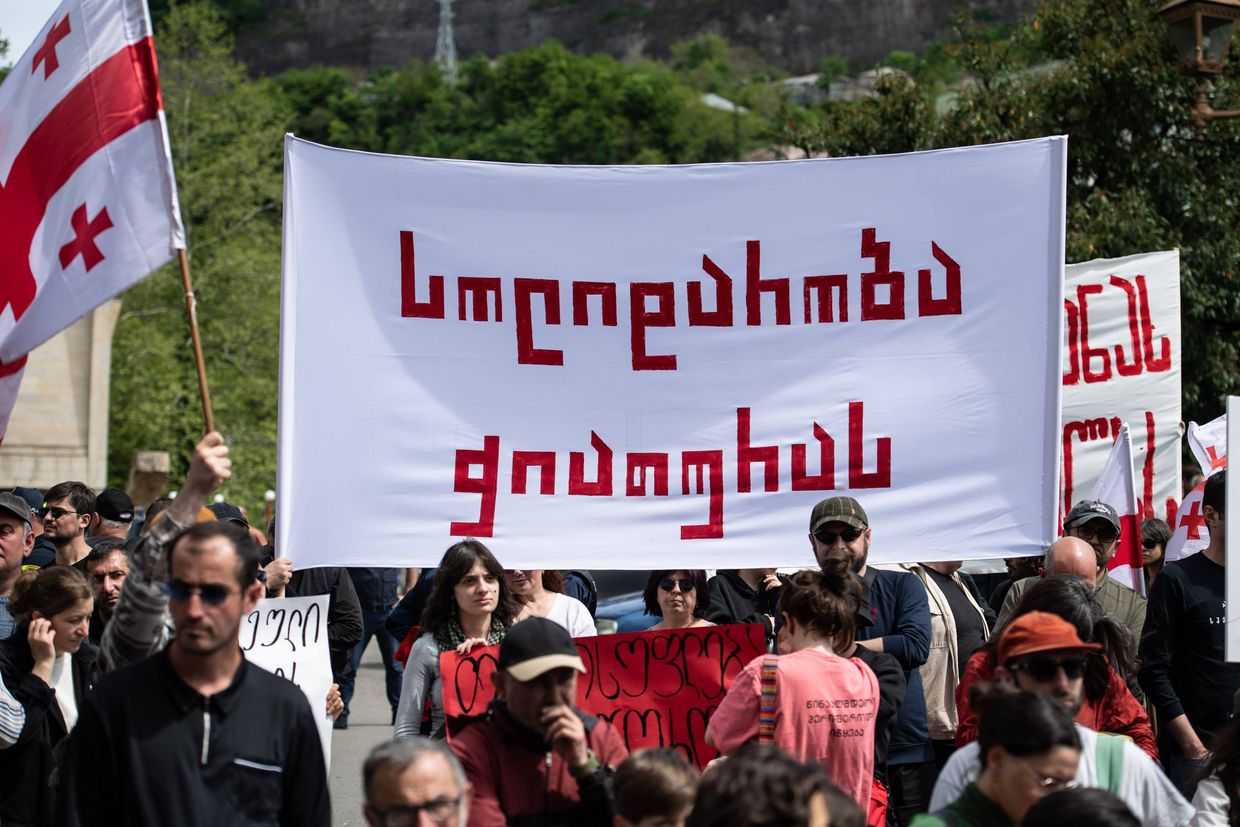

Residents of Shukruti, a village near the industrial city of Chiatura in western Georgia, have shut down several mines demanding compensation for damages to their homes caused by the mines.
Local residents began their protest in September 2019. On Thursday, residents blocked the entrances to the mines, which are owned by Georgian Manganese LLC. Georgian Manganese acquired a 40-year mining license for the village in 2006.
Contrary to promises made by the company, they have still not evaluated damage allegedly sustained to residents’ properties.
‘The houses of the local residents have been damaged. Because of explosions, there are cracks on the walls’, Tamta Tsereteli, a representative of the Human Rights Education and Monitoring Centre, a Tbilisi-based rights group, told OC Media.
She added that in addition to immediate property damage, mining operations have also resulted in sinkholes opening up.
The mines were previously shut down after villagers first began their protest but resumed operations after local residents were promised that a special commission would be formed to examine the damages and suggest financial compensation.
‘Yesterday was the last day to present the findings of the commission, after which compensation should have started’, Tsereteli said. ‘But it didn’t happen and local residents were not informed in advance that there would be a delay. Now they feel deceived.’
She also told OC Media that the commission was composed of local residents and company representatives only, and that there were no representatives of rights groups or government officials on it.
OC Media has reached out to Georgian Manganese for a comment.
Mining in Chiatura
Chiatura is a manganese-rich industrial city infamous for worker fatalities caused by poor labour safety measures.
According to Chiatura’s First Trade Union, on 12 May, a miner was hospitalised after a rock hit him in the head while he was working at the Korokhneli Mine. Others were less fortunate.
In March 2018, 45-year-old Zaza Abramishvili died in the mines in Chiatura. He was digging a tunnel in the Shukruti mine when it collapsed.
Another fatality was reported in April 2017, in Chiatura’s ore processing plant, when a worker fell from a height and died.
After starting a sudden and unsanctioned strike in May 2019, miners in Chiatura stitched their lips together to demonstrate how much their hazardous occupations cost.
Around 3,000 mine workers went on strike in Chiatura earlier in May. Employees of Georgian Manganese LLC, the largest employer in the ore-rich but otherwise impoverished city — a city where the river has turned black due to manganese contamination.
Many manganese workers describe their jobs as akin to ‘slavery’. They say they fear for their lives and their families’ health but need to make ends meet.
A protest that started among 150 ‘special regime’ miners on 15 May spread quickly to the whole workforce. On 27 May, the 11th day of a hunger strike by workers, shops were closed and schools were left idle as thousands of local residents, including school children, joined a solidarity march through the city.
The strike ended on 28 May, when the company promised the workers a 35% pay raise.
[Read more about the protest in Chiatura on OC Media: Speaking up through sewn lips: a wildcat strike in Chiatura]








